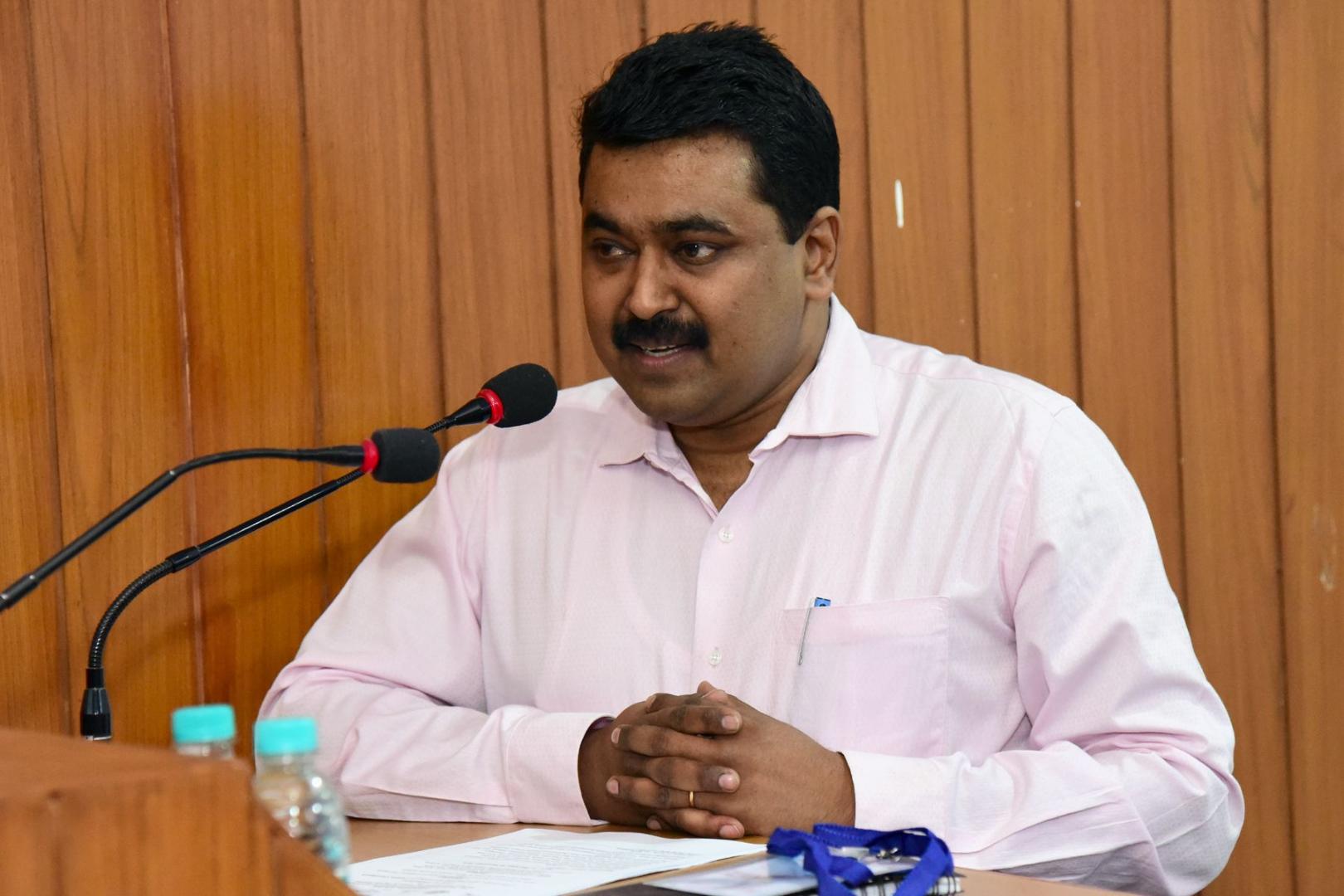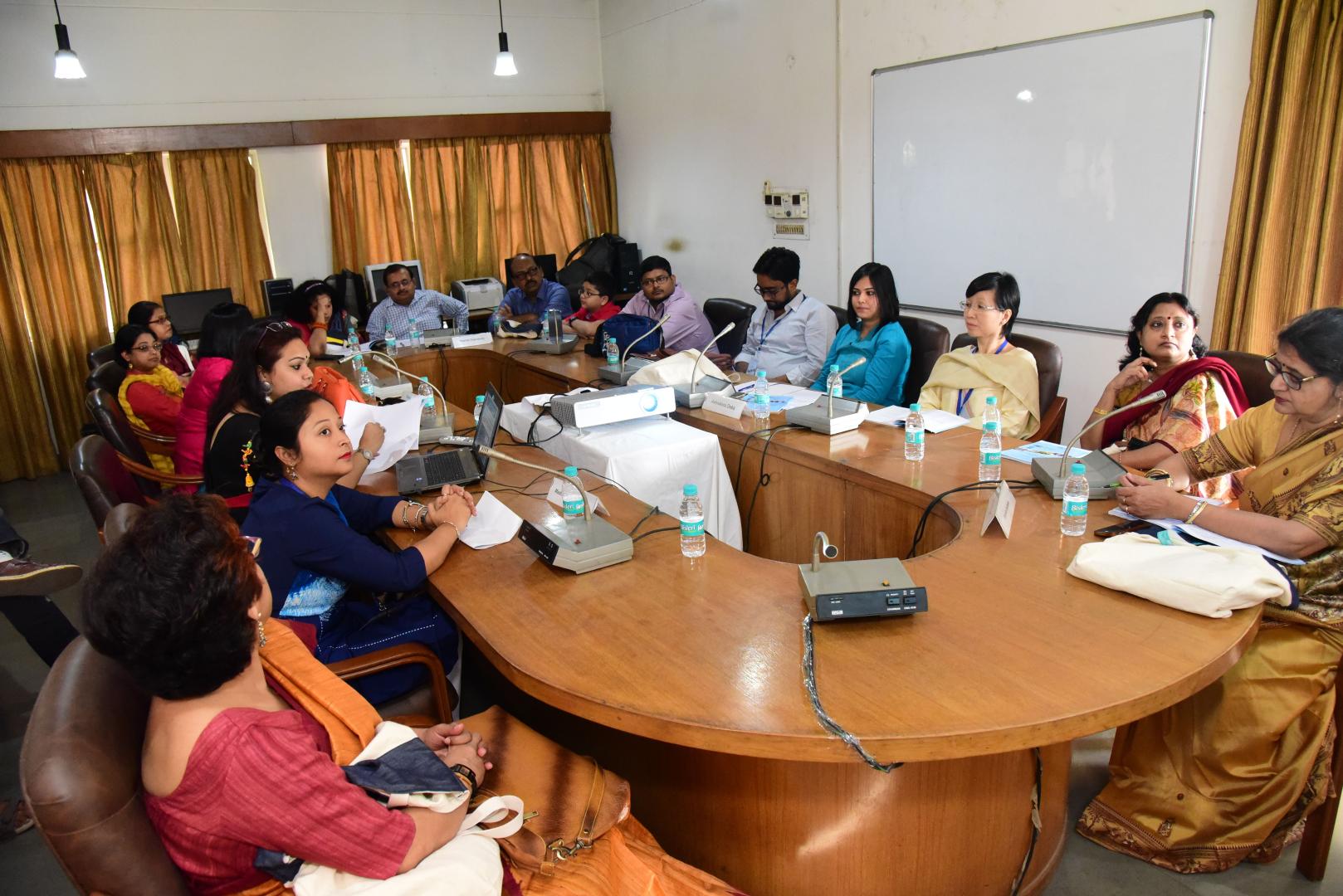Event reports
Dr. Anasua Basu Ray Chaudhury, Secretary at IAAPS Kolkata, drew attention to the increasing involvement of multiple major powers such as Japan, Australia and USA in the Indo-Pacific, the continuous rise of China and India’s attempts to revive age-old historical and cultural linkages with the countries of Southeast Asia and Asia Pacific. Professor Partha Ghosh, President of IAAPS, New Delhi mentioned that Asia’s future is increasingly determined through the dynamics in and between India and China which would have significant impacts on the dynamics within the Indo-Pacific region. Peter Rimmele, Resident Representative of Konrad-Adenauer-Stiftung, New Delhi as the Guest of Honor focused on the dynamic nature of the transition and described why Germany considers India as a strategic partner. Taking the discussion forward, Professor Rahul Mukherji, Head of the Political Science Department at Heidelberg University, delivered the keynote address and brought to light a new dimension in his presentation on how governing India was different from the rest of Asia. Professor Raj Kumar, Vice Chancellor of Panjab University, Chandigarh concluded the session by describing transition as always faced with challenges. Nonetheless, the focus should be on the advantages of development that would come along with the change.
The following academic sessions were taking place parallely and dealt with history and historiography as well as colonial-, post-colonial and contemporary approaches in order to describe a transitioning Asia. Hereby, research papers were presented with topics ranging from archaeology, history, borders and to identity. Subsequently, the overarching topics culture, language, art and religion as well as migration and displacement in the Asian-Pacific region were elaborated from different angles. Here, nationalism, cultural heritage and implications of displacement were widely discussed. Another session dealt with “Great Power Politics in Asia-Pacific” where special issues were picked ranging from democratic alliance, power politics, energy to maritime strategy. The parallel presentation on “Gender and Society” offered insights on women-related topics, women rights and women in monarchy, democracy and the third gender. The last session dealt with “Environment, Climate Change and Sustainable Development Goals” in which ecological distress and climate policies were mentioned as major concerns. Simultaneously, regional co-operation in the Asia-Pacific region and the advancement of regional integration were highlighted while the success of associations as BRICS were questioned.
Special lectures were delivered by Professor Partha Ghosh who spoke on “Personal Laws or a Uniform Civil Code: Dissecting an Indian Debate” and Professor Zingel whose lecture addressed the issue of “Pakistan and its Neighbours: Assessing Economic, Ecological, Sociological and Political relations”. Professor Zingel portrayed how social, economic disparities and increasing violent factionalism had put Pakistan in a politically fragile state. The country had also lost its edge over India and might even lose it over Bangladesh. However according to the parameters presented, it was not a failed state yet. On the second day, a panel discussion on the “Sustainability and Development Paradigm in Original Green Revolution Regions of India” was held. Speaking on the topic, Professor Gill of CRRID discussed the concept of ‘Sustainable Development’. He remarked that if population continued to grow at the present rate, there would be further depletion of land, fossils fuel and soil. Hence, there would be constraints on the limited natural resources. Ground water was also being depleted and the effect of it was being felt in the entire belt of Haryana, Uttar Pradesh and Punjab. Present use of technology had put pressure on present farming patterns and had rendered them unsustainable. Professor Ghuman of CRRID advocated that there should be a comprehensive agricultural, water and crop management policy. Ajay Vir Jakhar, Chairman of Punjab State Farmers’ and Farm Workers’ Commission, from Mohali, remarked that there is also a lack of uniformity in the concept of sustainability. Monoculture was also a huge problem as it depleted particular nutrients in the soil, thereby calling for research on inter cropping and row cropping.
Professor Partha Ghosh presented the valedictory address in which he addressed the phenomenon of globalization. He elaborated that it was the general conception that globalisation was a new concept, rather, it had been there for 500 years and more. While we could communicate across borders easily, physical barriers had (e.g. the Mexican-American case) increased. While technology had brought us closer, it was ironical that this easy communication was also dividing people since creating rumours and agitations had become easier. This way, technology showed its double-edged weapon. In the same session, Romina Elbracht, Project Officer at KAS, New Delhi gave her remarks on the similarities between India and Germany. She proposed that the two countries needed to work closer together to ultimately bringing in transformation which all like-minded and rule-based societies were striving for in a current world order that is more and more shaped by uncertainty, fears and unpredictability.












